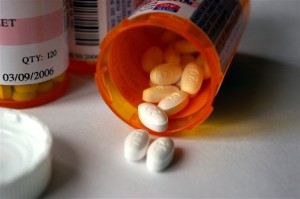You have numerous choices in putting together an emergency supply of food, water and medicines. You can purchase kits that include a year or more supply of freeze dried food or even MREs (Meals Ready to Eat). And this kind of preparation may well fit your plan. A lot depends on where you are located, the density of population in your “neighborhood,” etc.
Medicines for the family and pets take extra care.
Of primary importance is your supply of medicines that members of the family (including pets) require. Making sure that prescriptions are refilled promptly so that you always have at least two weeks worth of them on hand can be life saving. Some prescriptions are timed to renew closer to the end of the supply so a discussion with your doctor or pharmacist may be necessary.
A realistic food supply.
Before you go out and spend several hundred dollars on food packets that are likely to sit in a closet or on a storage shelf for months or even years waiting for a cataclysmic event, we suggest that you take a more practical, less expensive route and simply buy extra portions of the canned & packaged goods that you eat regularly and “rotate” their usage so that
you always have items with the longest shelf life on hand.
Will it need cooking?
Obviously, if these are to include frozen items, you will want to have an alternate supply of electricity, such as a gas generator available to run periodically. Likewise, if chosen foods will require cooking, you will need a portable camp stove to use in preparing meals. What you choose to “stock up on” will depend on your regular eating habits as well as your physical situation.
Let’s not forget pets.
MREs don’t work too well for them. They are not likely to want to taste “pet MREs” any more than you want to eat human ones. In fact, pets also may not be prepared to eat ANY new food. Keep that in mind as you pack food supplies for their emergency kits.
How much to store?
How much of a supply you keep on hand is up to you. Some foods have a shelf life of more than two years. Many are best used within six to nine months. We’re really focused on having a supply to last us for 3 to 10 days. Anything longer than two or three weeks and we would expect outside help of some kind. And a case in point – something of an embarrassing admission – we have a ten gallon container of dried foods that we purchased several years ago that is nearing the end of its useful life. That turns out to be a not-so-good investment. We’re not likely to replace it.
If you are a serious and experienced survivalist, you will find these references to emergency food and water mighty simplistic. But if you have just begun to think about pulling together emergency supplies, it can be a start.
You’ll find much more detail on these topics right here in the Advisories. Just head up to the “search” bar at the upper right of this page, type in “water” or “food” or “pets” to get a lot more info!
Virginia
Your Emergency Plan Guide Team
Don't miss a single Advisory.
Thank you for subscribing.
Something went wrong.

